Table of Contents
Introduction
1. How do sink filters work?
2. What potential contaminants can sink filters remove?
3. What is the difference between faucet-mounted and under-sink filters?
4. Is a plumber required to install sink filters?
5. How often should sink filters be replaced?
6. Is an activated carbon or a reverse osmosis (RO) filter better?
7. Are sink filters popular?
8. Do sink filters help soften water?
9. Are sink filters good for the environment?
10. How much do sink filters cost?
Final thoughts
Introduction
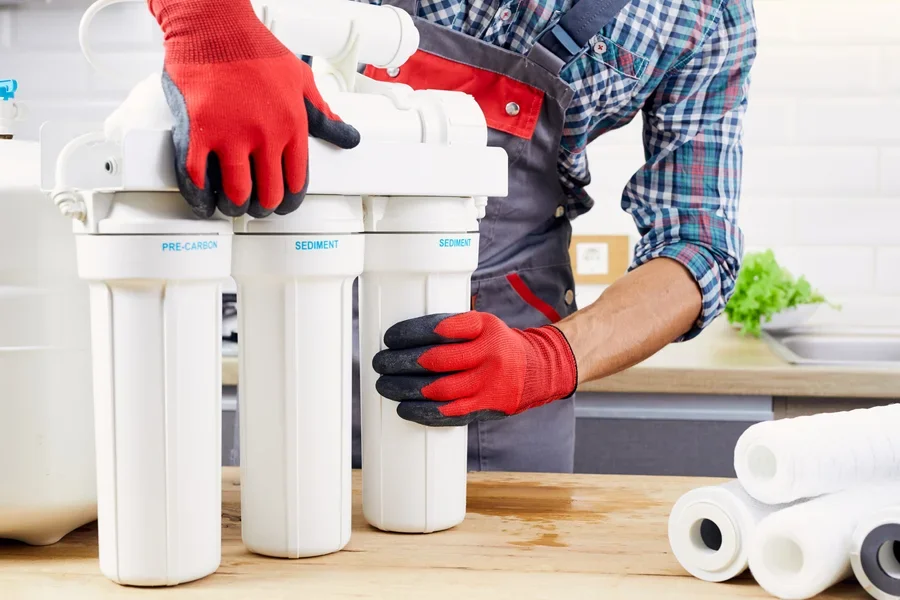
Using safe water is now more important than ever, which is why sink filters have become an essential device in many homes. This filter is designed to remove all types of impurities and chemicals from the water before it reaches the tap. Using a good-quality filter can have a positive impact on people’s daily lives.
Here’s a look at the top 10 questions regarding sink filters.
1. How do sink filters work?
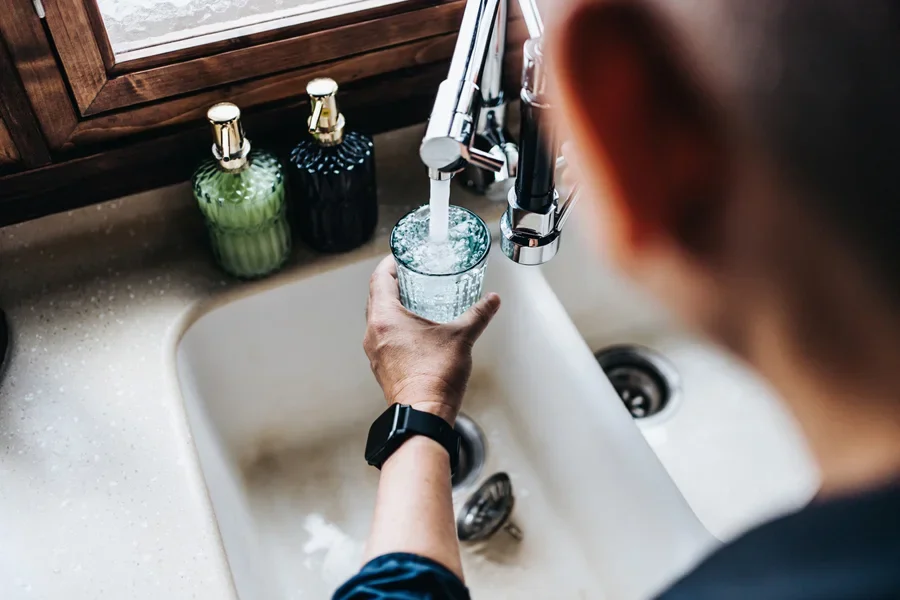
A sink filter is designed to purify tap water through the use of a filtration system. This system removes specific contaminants from the water, such as heavy metals, nitrates, and microplastics. Activated carbon is a popular filter media that’s known for its ability to absorb VOCs (volatile organic compounds), chlorine, and odors. The ceramic membranes are able to block particulates and bacteria from entering the water. More advanced systems will use RO (reverse osmosis) systems that use very fine membranes to get rid of dissolved solids like nitrates and fluorides.
The water pressure will push the unfiltered water through the above-mentioned media, therefore removing the impurities before they reach the main faucet. For a sink filter to work effectively, it’s important to regularly replace the cartridge.
2. What potential contaminants can sink filters remove?
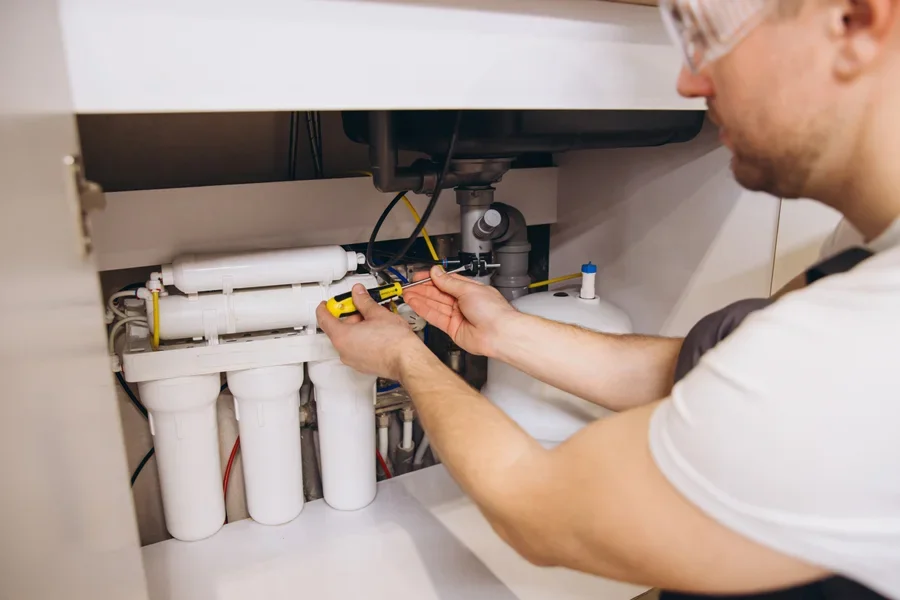
Sink filters are designed to remove several impurities. Chemical contaminants are a big problem in water, and these filters can remove things such as chloramine, chlorine, and pesticides. These chemicals can hurt the overall taste, safety, and odor of the water.
Physical contaminants such as rust and dirt can also be removed from the water thanks to the filters. Microplastics are another big issue in many places, and advanced systems can even remove the smallest amount.
Biological contaminants can’t be removed using standard sink filters, but ceramic filters or those with UV sterilization can remove viruses and bacteria from the water. This is helpful for homes that use well or untreated water.
Lastly, sink filters that use KDF media, for example, can remove heavy metals from the water, such as arsenic, lead, and mercury. These contaminants are often found due to old pipes and can cause serious health concerns.
3. What is the difference between faucet-mounted and under-sink filters?
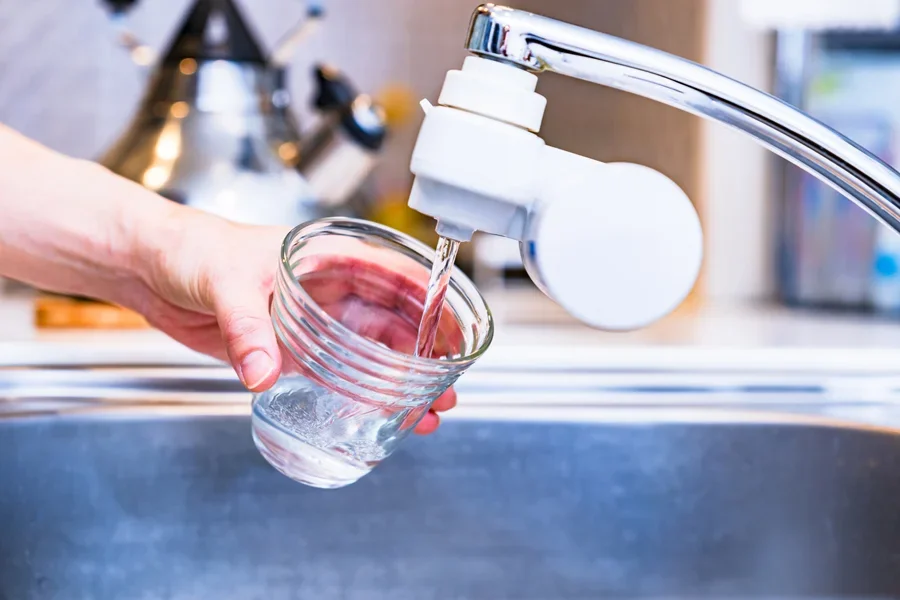
A faucet-mounted sink filter can be attached directly to the faucet, allowing water to flow freely with little hassle. These filters are very easy to install, with little or no tools required, so they’re ideal for those looking for a quick and budget-friendly solution to their water problems. The downside is that they don’t offer as good of a filtration as larger systems and they may reduce water pressure.
The under-sink filter needs to be installed directly to the water supply line, and it fits under the sink. These filters are highly advanced, with a multi-stage filtration system that sometimes includes a separate faucet for the filtered water. Although the water quality is superior with under-sink filters, the installation process is more complex so a professional may be needed.
4. Is a plumber required to install sink filters?
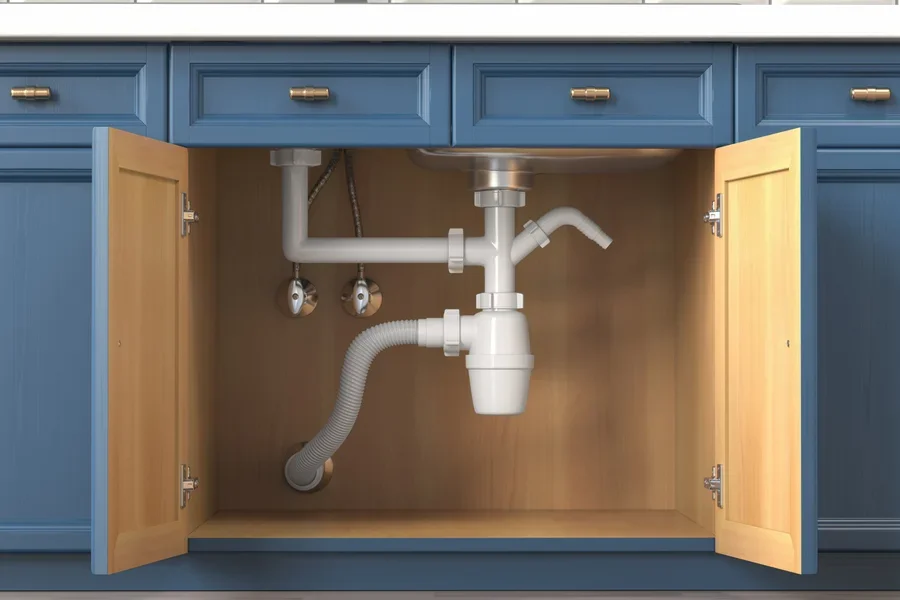
The answer to this question depends on the type of sink filter. Countertop filters are designed to be installed easily, and some even offer tool-free installation. This makes them a great option for DIY jobs without the need to call a professional.
Under the sink filters, however, require more knowledge to install effectively. They need to be connected to a cold water supply, and pipes may need to be adjusted or cut. Individuals who aren’t confident in plumbing should seek the advice of a plumber to ensure a leek-free and secure installation of the sink filter.
5. How often should sink filters be replaced?
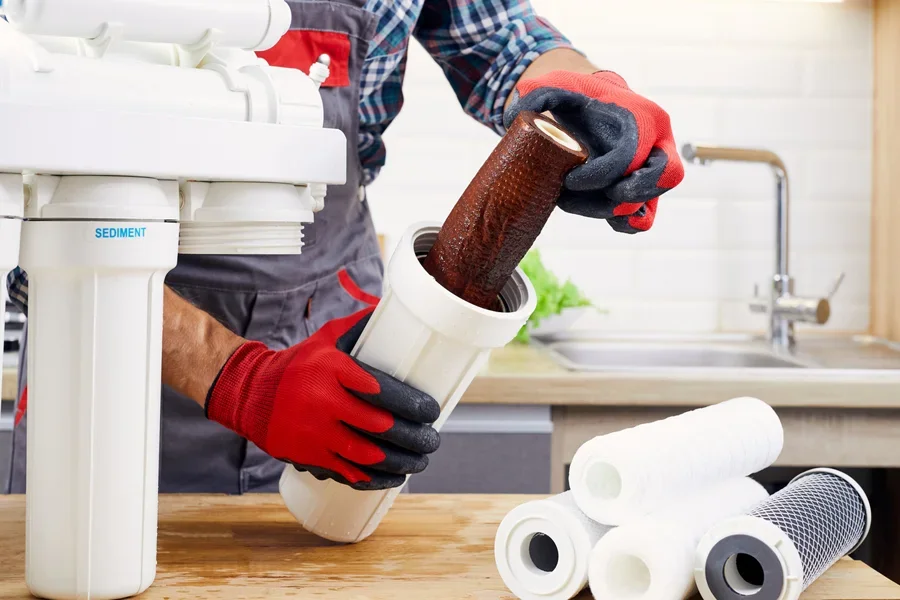
Many people don’t realize this, but sink filters need to be replaced on a regular basis. Typically, filters should be changed every six to 12 months, but this will depend on how often it’s used and the filter type. Not maintaining a sink filter can reduce the effectiveness of it and it can also lead to the buildup of bacteria. Always follow the guidelines set out by the manufacturer to ensure everything is being done correctly.
Due to their smaller capacity, faucet-mounted filters may need to be changed every three to six months, whereas under-sink filters can last up to a year. Again, this depends on usage and water quality so every situation is different.
6. Is an activated carbon or a reverse osmosis (RO) filter better?
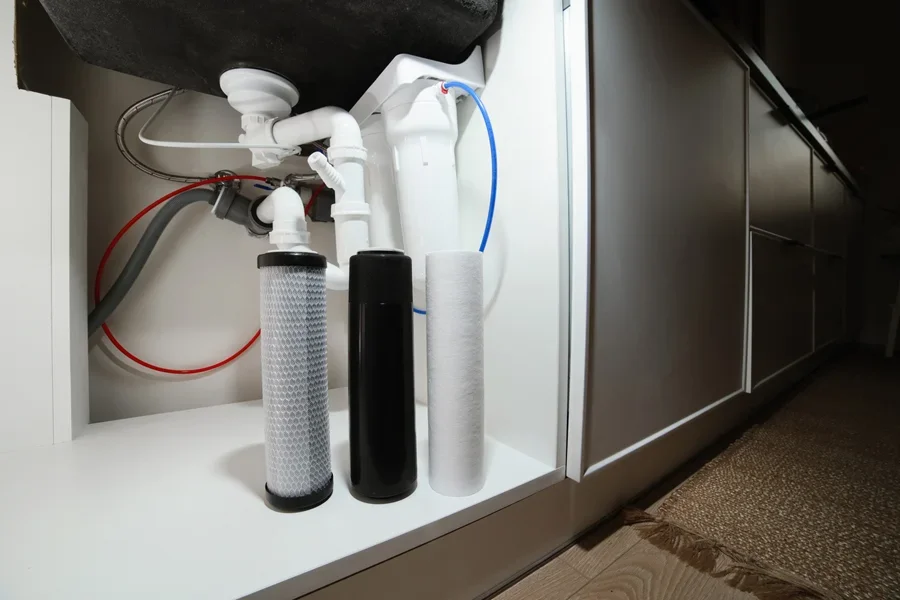
An activated carbon filter is perfect for households that want to improve the smell and taste of their tap water. It removes chlorine, VOCs, and pesticides from the water, and it’s very cost-effective. Most buyers will use this filter for water that’s already been treated and is safe to drink. Activated carbon filters aren’t able to remove heavy metals, microbes, or dissolved solids though.
Reverse osmosis (RO) filters offer a deeper filtration, so they’re better for households that have poor water quality or that use well water. The water is pushed through a semipermeable membrane that has the ability to remove contaminants such as bacteria, nitrates, and fluoride. These filters are more expensive though, and they take up extra space, which may not appeal to everyone.
7. Are sink filters popular?

Sink filters are growing in demand as people become more conscious about their tap water quality. They provide a convenient and affordable way to ensure safe drinking water, and they eliminate the need to purchase bottled water.
In 2024, Google Ads revealed that the term “sink filter” had an average monthly search volume of 12,100. Searches remained steady for most of the year, with dips coming in the winter months, when searches fell to 9,900 per month.
The growing popularity of sink filters has led to a big rise in their market value as well. By the end of 2024, the global market value of sink filters had reached USD 6.7 billion. This number is expected to increase by a compound annual growth rate (CAGR) of 5.1% between 2025 and 2034, bringing the total market value up to USD 11 billion by the end of this period.
8. Do sink filters help soften water?

Unfortunately, sink filters don’t soften water. They’re designed to remove contaminants but they’re not able to reduce water hardness. This is caused by high levels of magnesium and calcium in the water, so a specific water softener is needed. This will help to replace these chemicals with sodium or potassium ions to make the water more pure and softer.
9. Are sink filters good for the environment?

Using a sink filter is a great way to cut down on the use of plastic bottles. By providing clean and great-tasting water, buyers can get water straight from the tap which will also cut down on their carbon footprint. The tradeoff though, is some filters will waste water in the filtration process, and not all filters are recyclable so using them can generate extra waste in the household.
10. How much do sink filters cost?
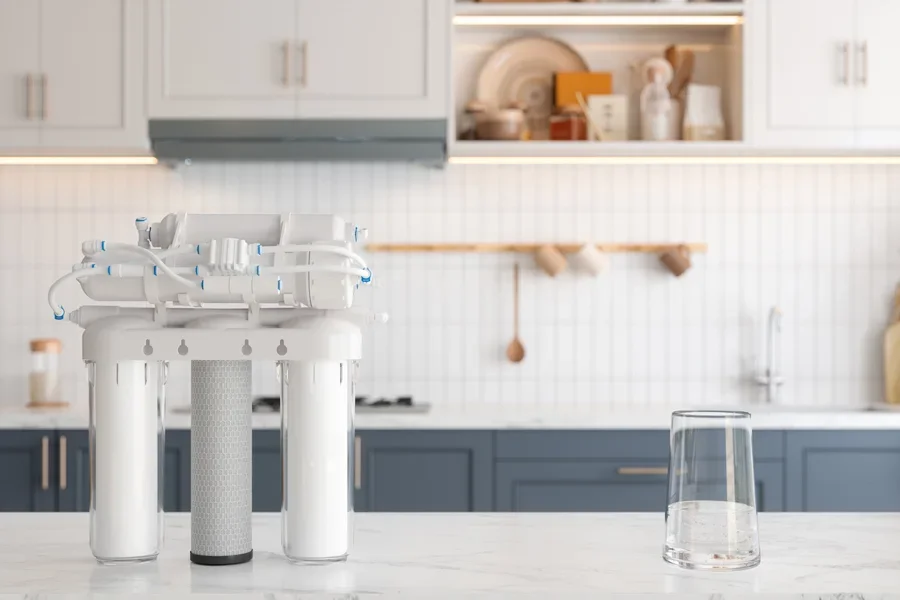
Sink filters vary in price based on the quality, technology, and type. Faucet-mounted filters are the cheapest, with most models ranging from USD 20 to USD 50. The cartridges can be purchased for USD 10 to USD 30.
Under-sink filters are more expensive, running from USD 100 to USD 300, and cartridges can cost up to USD 100 to replace on an annual basis. Reverse osmosis systems are significantly more expensive, with some costing more than USD 600 and replacement cartridges costing upwards of USD 100 per unit.
The upfront costs for sink filters are generally more, but over time these devices pay for themselves and are very useful in the household.
Final thoughts
Using a sink filter is an effective way to ensure the household receives clean and odorless drinking water. The filters come in different forms, but each style works to eliminate contaminants from the water before they reach the faucet. Buyers need to research which type of filter will be the most beneficial for them.



